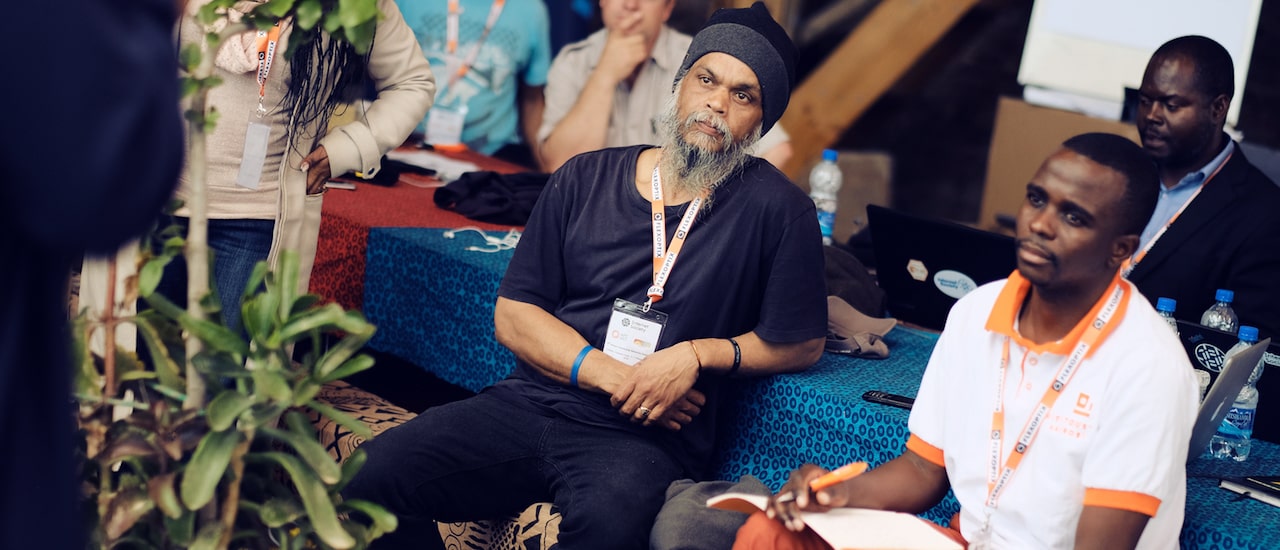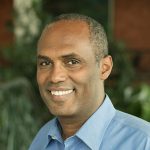At the recent African IGF in Khartoum, on November 5, participants of the workshop on “Strengthening the Institutional Capacity of Critical African Internet Institutions” hailed the achievements of African Internet institutions in bringing connectivity and broadening access in the last decades. They also recognized their shortcomings and stressed the need to address them so that they continue to serve the continent amidst the potential challenges that it will be facing in the future, as the African Internet grows and more users come online. The workshop was organized by AFTLD, the African Union Commission, and the Internet Society.
Fifteen years ago, Africa had less than 3% Internet penetration and was trailing far behind the rest of the world. Today, with a third of its population connected to the Internet, Africa’s connectedness is still behind but in a much better position than before, since the gap in Africa and the rest of the world has been shrinking. In fact, some countries in Africa have connectivity levels comparable to those of developed countries – something unimaginable fifteen years ago!
The progressive increase in Internet penetration in Africa could not happen without its regional Internet organizations, known as Af*, and the various NOGs (Network Operator Groups), which train thousands of African engineers on Internet technologies, who then obtain the skills necessary to establish and operate the hundreds of networks in Africa. Nor could it happen without organizations such as AFRINIC that manage Internet numbers and train thousands of people to adequately use Internet number resources and in particular the adoption of new technologies such as IPv6. It most certainly could not have happened without the necessary collaboration between African operators that enable inter-networking and the establishment of IXPs (Internet Exchange Points). Last but not least, this could not also not happen without the many Internet Society Chapters and other organizations that continue to create awareness at all levels, including governments and users.
These and other institutions are needed for the future, which continues to be more complex. Today’s stakes and challenges are much greater. For instance, cybersecurity and privacy are now top priorities for citizens and policy makers, yet fifteen years ago, they were barely mentioned in Africa. Fifteen years ago, we had never heard of an “Internet shutdown,” “Fake News,” and “Hate Speech.” Today, they are household terms and are defining how we view the Internet. The list is endless. To enjoy an open, globally-connected, secure, and trustworthy Internet we need to deal with these and many other issues and we cannot do this without our institutions.
Therefore, the responsibility falls on everyone who wants to benefit from the Internet to nurture those institutions and to establish new ones that deal with new challenges. For example, it is encouraging that African IXPs have established Af-IX, the association of African IXPs that aims to lead the task of interconnecting Africa from other institutions such as the Internet Society and the African Union Commission.
AFRINIC is especially important since it has the sole mandate (and a natural monopoly) to manage Africa’s Internet numbers. If AFRINIC is affected, the whole of the Internet is affected. It was clear from the discussions in Khartoum that there is no alternative to AFRINIC and we do not have any other choice but to strengthen AFRINIC and not weaken it.
I am not saying that African Internet institutions are without problems. On the contrary, most of them have many shortcomings that they have to overcome to achieve their mission. In particular, AFRINIC, appears to be perpetually embroiled in controversies with its members and community as a whole, leading to distractions that are harming its capacity to achieve its mission. Most importantly, as it was stressed during the workshop, the community’s address-policy discussions have become so negative that community members are shying away from engaging in the discussions that set the policies for the region. That is also the main reason, according to the workshop participants, why the community doesn’t want to participate in AFRINIC’s governance. It is urgent that AFRINIC’s forums become once again a place for civil discussions. As proposed in the African IGF workshop, a code of conduct should be put in place so that it recreates an environment where everyone feels comfortable to talk decently without being attacked or ridiculed.
AFRINIC has other issues but they are normal issues that any fifteen-year-old organization might have. Its bylaws are outdated and need to change to adapt to the new environment, and AFRINIC is cognizant of that. After all, AFRINIC was created close to fifteen years ago when less than 3 percent of the African population was connected! It was also created when many of today’s companies (and their interests) did not exist. Therefore, AFRINIC should change to consider those new interests. But the necessary changes can only be made when there is a good climate for civil discussion that enable everyone to defend their interests and to find a common ground that can help Africa move forward. At the workshop in Khartoum, we saw that we can have those discussions. There is no reason why we cannot repeat that in AFRINIC’s own community forums, be it online or face to face. As we approach the next AFRINIC policy meeting (AFRINIC 29), I urge AFRINIC’s community to consciously put in place an environment for fruitful and meaningful discussions so that we can collectively help the necessary reforms in AFRINIC and help build an AFRINIC that can serve the next generation of African Internet users. This is important for Africa but also for the whole world since the Internet needs Africa more than ever before!
Help build an Internet that’s for everyone! #CountMyVoice
Image: Fadiel Davis at the Third Summit on Community Networks in Africa © Internet Society/Nyani Quarmyne/Panos Pictures

